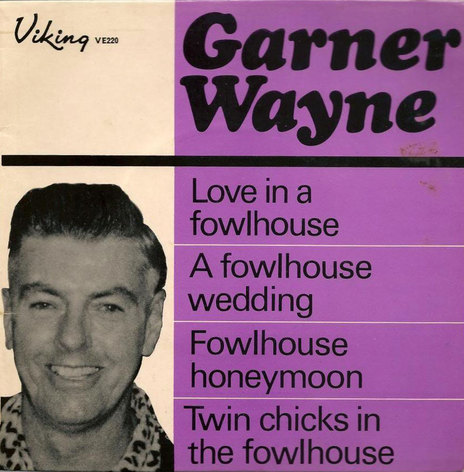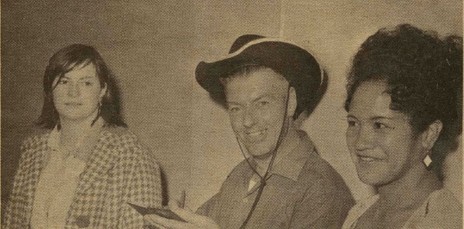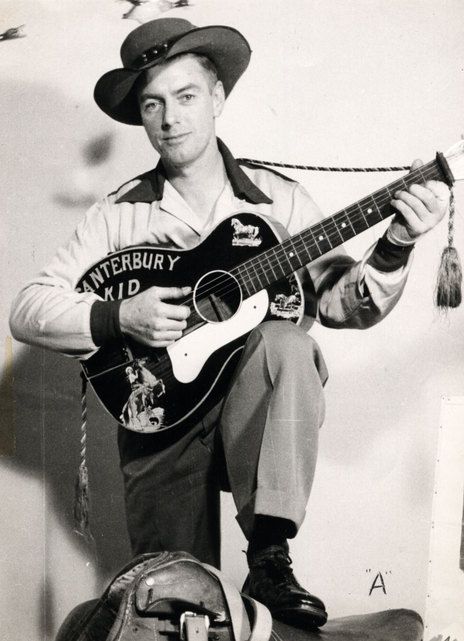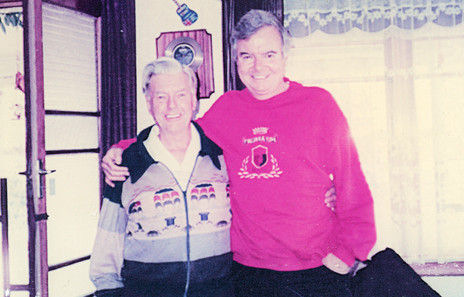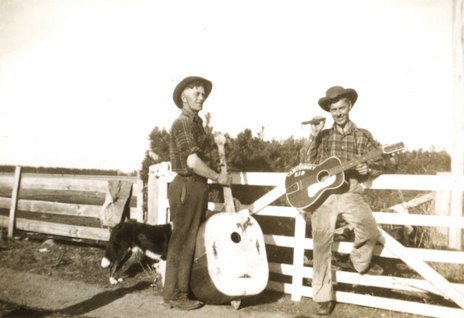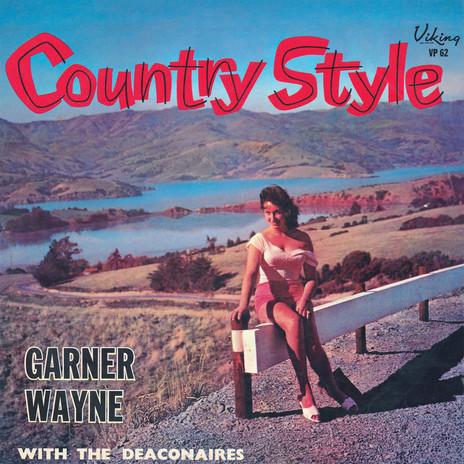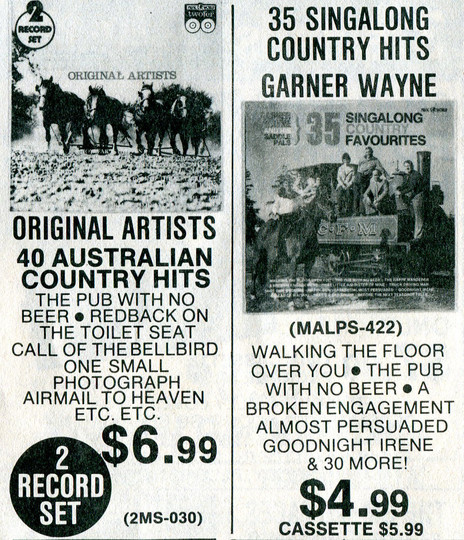Each Sunday night in Christchurch there was a variety show, and among the regular acts in about 1935 was a duo from the West Coast called Billy and Buddy. Wayne recalled to Jim Sutton, “They’d come on stage wearing hats and chaps, singing country songs. I came away from there and said, that’s what I want to be.” Soon Wayne was on the cinema stage himself, singing ‘If I Had A Talking Picture Of You’ during an intermission, and he won two tickets to see the next attraction.
While at school he began playing the harmonica and guitar and formed a kind of proto-skiffle group called the Musketeers. “At practices we nearly drove my parents mad, but there was no television so we made our own entertainment,” he told the Tinwald Times in 1990. He imagined himself as a cowboy riding the range, and off into the sunset, inspired by whatever country and western discs he could buy.
During his teenage years Wayne won a talent quest playing a guitar with only four strings, using ukulele chords. In the army during World War II, he was stationed in Fiji when he wrote one of his first songs. “It went, ‘I don’t like the army, I don’t like the pay/ I guess I’m just a dude in army clothes.’ They almost court-martialled me for that.”
Wayne wrote more than 300 songs and recorded over 100.
While shooting rabbits in Rangitata, Wayne met his wife Nancy. After marrying, a doctor suggested they move to the country to help Nancy’s asthma, so Wayne advertised in the paper: “Married man with family desires job on farm, can ride a horse but no other experience.” They got hundreds of replies, and for a few years Wayne became a farm hand. At his first job, he was offered a wild palomino as his horse. Later, once he began performing regularly, he would be nicknamed the Canterbury Kid, and he was often pictured playing his guitar while in the saddle.
Wayne wrote more than 300 songs and recorded over 100. Many had a nationalistic sentiment, such as his first release for Viking in 1960, ‘I Love The Land’. Others that followed included ‘Roaming Round New Zealand’, ‘The Mainlander’, ‘New Zealand is My Home’ and ‘ Kiwi Hobo’. All were delivered in his proudly Kiwi accent, and most were backed by the Saddle Pals, his group from 1953 until the 1980s. The group – Alan Green, Joe Sheehan, Jack Mann and Johnny Harper – entertained in South Canterbury woolsheds before they were discovered by Viking in 1960. His most successful record was the spirited, Celtic-tinged sing-along ‘Birthday Wishes’: a request show perennial, and Viking’s biggest seller for two years.
But another of his songs became part of the soundscape.
I’ll be yours and I’ll be true
And I’ll lay lots of eggs for you
I’ll be yours for the rest of my life
First released in 1964, ‘Love in a Fowlhouse’ has the naïve charm and kindergarten appeal of ‘Old McDonald’s Farm’ and ‘Rock Island Line’. An archetypal novelty song – at first irresistible, made unavoidable by generous radio play – its innocence hides its songwriting craft. Wayne found his inspiration in his chook house, where his young daughter was moping about an early playground romance gone awry. “There was a real commotion at the time: the roosters were chasing pullets. I said ‘Don’t worry, even fowls have love problems – look at them in there.’ And I starting clucking and crowing and eventually got a grin out of her.’ That night over dinner, Wayne kept clucking and thought, “We’ve had love in every other way, why not this?”
Wayne’s poultry love song about Freddie the Rooster and Hettie the Hen proved so popular that it became a series.
Wayne’s poultry love song about Freddie the Rooster and Hettie the Hen proved so popular that it became a series. He wrote several follow-ups: ‘A Fowlhouse Wedding’ begat ‘Fowlhouse Honeymoon’ begat ‘Twin Chicks in the Fowlhouse’. And there Wayne let it rest. “Of course the record company wanted me to go on with divorce and everything, and I said ‘No – leave it with a happy ending’.”
Hugely successful, ‘Love in a Fowlhouse’ nevertheless polarised people. A farmer from Harewood claimed it made his chooks lay better; a woman in Ashburton said it made her dog howl at the moon. When a newspaper described the song as “pornographic”, they were threatened with legal action and had to apologise.
Wayne told Gordon Spittle, “I have been to places and started this ‘Love in a Fowlhouse’ and the place goes mad. But you always get the odd one who says, ‘Aw, I can’t stand that song’. You can’t please everybody.”
With his inimitable – but much imitated – voice, and his determinedly local material, homespun philosophising and humour, Wayne can be seen as New Zealand’s equivalent of Roger Miller (‘King of the Road’) or Slim Dusty (‘Pub With No Beer’). In 1995 Wayne said to Spittle, “I’ve always tried to bring New Zealand culture into it. So many Kiwi singers try to imitate the Americans, which annoys me.”
He continued writing and recording well into the 1990s, recording his songs on a 4-track in his front room, then sending them out on cassette to mail order customers from around the world. For many years Wayne lived in Tinwald, Ashburton, working as a machinist at a knitwear firm. He died in 2007 aged 86, but in the memories of children and country music fans of the 1960s, Freddie the Rooster and Hettie the Hen live on.
